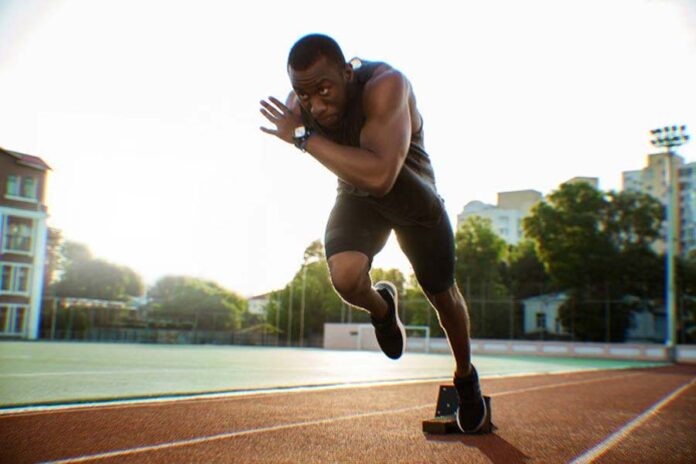Cannabis and the Health and Performance of Athletes
Marijuana is moving fast to legalization, and its therapeutic benefits come to the fore in many domains of human activity. Various weed products emerged with athletic indications, and many athletes openly promote using weed or CBD edibles for stress reduction, performance enhancement, and pain relief. This evidence shows that athletes who work out regularly and need muscle recovery and pain aid have embraced weed's anti-inflammatory and soothing effects.
However, things are not as simple as they seem. With little clinical evidence of weed's impact on physical performance, clinicians caution people against using weed because of the high risk of cardiovascular or respiratory problems. As weed lowers patients' blood pressure and worsens reaction times, doing some kinds of sports gets risky for athletes.
So, before looking for a cannabis delivery near you, try to assess the propriety of using CBD products with objectivity and critical thought. At times, marketing is only marketing with no scientific basis for promoters’ claims. Here we consider scholarly evidence to see whether sports and CBD are friends or foes.
Why Do Athletes Use CBD?
What makes athletes believe that weed benefits their health and sports performance? Recent surveys have found many reasons for weed (or CBD) use in combination with workouts:
- Treatment of inflammation. The anti-inflammatory effect of weed is well-known; CBD is broadly applied to treat arthritic inflammation without pronounced side effects. Thus, athletes can take advantage of various CBD-infused topicals to soothe the inflammation of traumatized joints or muscles.
- CBD use to soothe pain. Pain is a popular companion of intense workouts, and the use of strong painkillers is under strict regulation by WADA. Besides, many painkillers are highly addictive, causing a broader realm of health problems. CBD is a safer option for pain management, coming with meager addiction risks and offering good pain control.
- Muscle recovery. Athletes exposed to high-intensity workouts have difficulty falling asleep and calming down because of high cortisol and adrenaline levels. CBD can reduce the concentration of these hormones to help athletes unwind.
- CBD as an energizing performance booster. CBD is widely marketed as a substance enhancing user energy, focus, and performance. Thus, it has become a popular component of pre-workout substances that athletes consume before training.
- Appetite control with CBD. While smoking weed is associated with disorderly eating ("munchies"), using CBD alone causes the opposite effect. Research shows that CBD can bind to the GABA-A receptor and regulate your appetite.
Another significant argument in favor of CBD use by athletes is its positive effect on sleep quality. Numerous studies have found CBD to improve sleep, which, in turn, enhances athletes' reaction times, motivation and focus, muscle recovery, and endurance during high-intensity exercise. Besides, regular high-quality sleep affects people's immunity and boosts weight reduction on a healthy diet. Therefore, athletes and regular people can benefit from CBD for sleep improvement.

What Does Science Hold?
Let’s now have a look at the clinical evidence for and against marijuana use during sports activities.
- According to Ware et al., there is increasing evidence of cannabis use among athletes, which is a reflection of the changing societal and cultural norms, but a signal of marijuana’s benefits for athletes’ health. The researchers also pointed out that marijuana has no clinical evidence for its use as a performance-enhancing substance.
- Burr et al. discovered a broad spectrum of health benefits of CBD use, including sleep quality, pain, and even management of mild traumatic brain injury. Thus, products without THC can be advantageous for athletes’ performance and recovery.
- A recent study by Sahinovic et al. found CBD to produce anti-inflammatory, analgesic, and anxiolytic effects on athletes, coupled with a broad neuroprotective impact. The researchers discovered these advantages when administering CBD as an acute, oral treatment for athletes' physiological and psychological responses to aerobic exercise.
Thus, we can conclude that marijuana, in its pure form, still has dubious clinical support for its combination with sports activities. On the other hand, CBD-infused products are found beneficial because they deliver the therapeutic benefit of cannabinoids without the "high" effect of THC.
Is CBD Use Always Safe for Athletes?
As the presented data suggests, CBD is generally beneficial for athletes, as it can reduce stress, improve sleep quality, and make the exercise process more enjoyable. However, given the origin of CBD – marijuana plants – athletes should be extra cautious about choosing the manufacturer of CBD oils, tinctures, or edibles they consume. Non-certified CBD products may contain neurotoxic THC and cause undesirable side effects. Otherwise, an unreasonably high CBD concentration can also cause unwanted sensations and do harm, just like any overused substance. Thus, it is recommended to double-check the manufacturer's credentials and CBD dosing before consuming CBD-infused products.
Exercise Caution when Using Weed Products During Exercise
The American market is flooded with CBD products from dozens of manufacturers, each of which claims to be the best. However, the responsibility for choosing pure, certified merchandise is in the hands of the consumer, and you need to exercise due diligence when buying CBD edibles and oil.
Please keep in mind that even safe substances can turn into poison if abused; the same goes for CBD. Thus, we recommend checking the origin of hemp from which products are made and the precision of formulation to avoid unwanted THC constituents or overdosing with excessively potent CBD concentrations.

